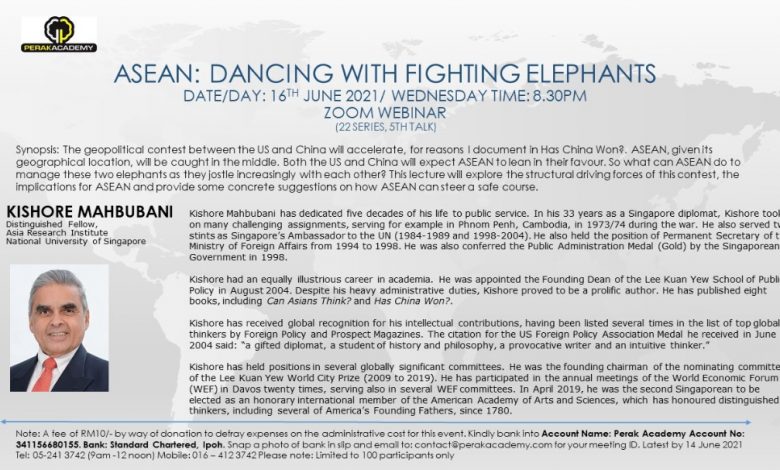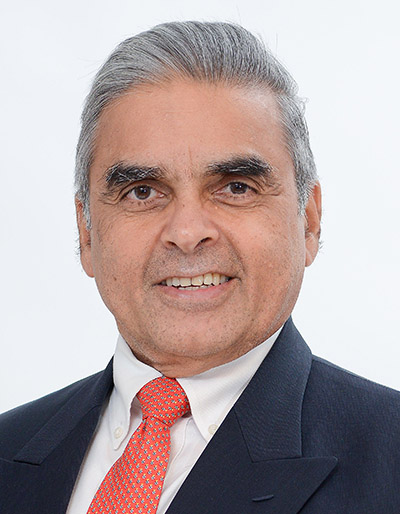Dancing With Fighting Elephants


Where does ASEAN stand in the clash of geopolitics between the US and China? Professor Kishore Mahbubani from the Asia Research Institute, National University of Singapore and a Singaporean diplomat, in a webinar on June 16 hosted by Perak Academy, explored the structural driving forces of the contest and how it will affect everyone.


“What worries me a lot is that most people tend to assume that all they can do is sit back and watch. In fact, we can’t stand aside and watch the ‘elephants’ fight, because we are all affected directly or indirectly and our lives will be disrupted in significant ways if the contest between China and the US gets out of control. People are remaining silent although it’s affecting us. I do believe that speaking out makes a difference.
“ASEAN represents the future and yet our voices are not heard. My goal today is to persuade all of you and I hope that Perak Academy can take the lead in saying that we should state our views clearly,” he said.
However, he said that first and foremost, we need to understand what this contest is about. “This contest is being driven by deep structural forces.
The current president of the United States, Joe Biden reversed many of Donald Trump’s policies but one policy he didn’t change was Trump’s action against China, the trade war. And Biden’s action actually confirmed that this contest is driven by structural forces.”
The structural forces he highlighted were: a number one power always pushes down the number two power that is challenging the former’s dominance; the fear of the ‘yellow peril’ in the Western psyche; and a bipartisan consensus in Washington DC that China has let the US down by not becoming a democracy.
“When Trump decided to call the COVID-19, ‘the China virus’ or ‘the Wuhan virus’, he was actually playing that ‘yellow peril’ card to get the people to be on his side. The Americans’ actions against China are driven by emotion and not driven by reason. The emotion comes from the fear of the ‘yellow peril’.
“As for the third structural force, the bipartisan consensus on China in the United States is the general expectation in the US that when the US engaged China starting in the 1990s, they first opened up the Chinese economy and then progressively opened up the Chinese political system,” he explained.
China today has shown a remarkable degree of expertise in many areas. ASEAN will be seriously challenged but it will survive and carry on because for the 10 ASEAN countries, each of them understands that when the tiny ASEAN breaks, they are vulnerable. However, as long as they can keep their umbrella together, then in some ways ASEAN creates a very valuable buffer.
Perak Academy regularly organises lectures to do with current national and international affairs. Visit their official website for announcements on their latest events.
Gisele Soo
===========================
Get your local news fast. Download the Ipoh Echo App on your mobile. Available on both Google Playstore and Apple Appstore.


